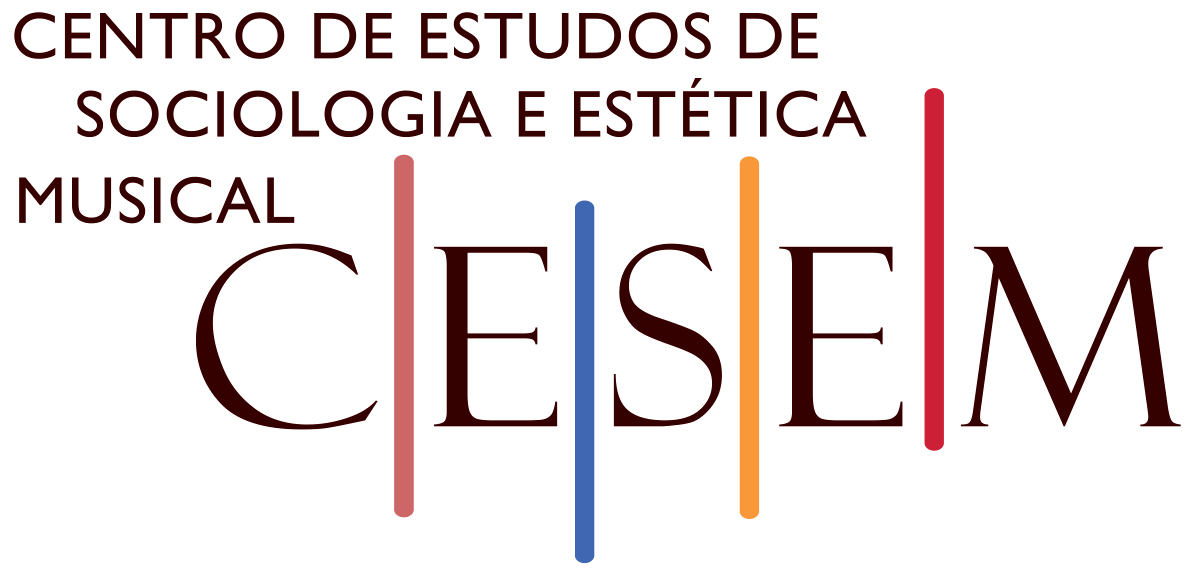Music and Performance thematic line
In recent decades, musical performance has been gaining importance as an object of musicological study from a diversity of perspectives. The Music and Performance thematic line brings together researchers from the various CESEM Groups and Satellite Units interested in the academic study of musical practice and performance, aiming, on the one hand, to facilitate dialogue and the sharing of different approaches and methodologies among its members and, on the other hand, to be a vehicle for academic and non-academic initiatives in the creation of knowledge in this area, seeking to contribute to the promotion of interactions between research and musical practice.
The intersection of ideas from researchers of various areas, as a result of the transversal character of the thematic line, should in itself promote an enrichment of the discussion about musical practice. This enrichment through diversity must, nevertheless, also be reflected in an inclusivity towards the musical styles and genres studied; and the ideological presuppositions that have contributed (and still contribute) to a privileged status of Western classical music in musicology should be critically confronted. Thus, this thematic line is not limited to the study of classical music, but may also encompass the diversity of musical styles and genres from past and present whose performative act has been recorded or described, including, among others, improvisation, traditional music, jazz, popular music, electronic and contemporary music, while seeking to analyse musical performance in various dimensions.
The thematic line’s research matrix naturally includes musicological research based on the philosophy, history, theory and analysis of interpretation and improvisation, as well as performance studies, the field of artistic practice as research, and the teaching and psychology of performance. This leads to potential research openings in a variety of topics, including: the relationship with the musical text (when it exists); musical temporality in its various meanings; corporality and instrument; the value of imperfection; the concept of “work”; music between process, result, body/object and experience; interpretative traditions; stylistic issues and their contextualization; relationships between musical performance and the audience; and relationships between musical performance and other performative acts (theater and other arts); among others.
Aims
- To bring together CESEM researchers with a diversity of interests in music practice and performance, fostering collaborative work and the sharing of ideas and varied perspectives.
- To strengthen links between musicology and music practice and performance, principally in Portugal, creating opportunities for the production of knowledge and the promotion of interactions between research and musical practice.
- To enrich musicological discussions by articulating the various perspectives and methodologies contained in the line when approaching relevant topics.
- To promote a critical view of performance practice over time, relating it to its historical and cultural context.
- To analyse the bases of musical and musicological practices in order to identify ideological factors and prejudices (especially in what concerns Western classical music).
- To contribute to the dissemination and adoption of recent musicological methodologies and approaches that are based on musical practice, with their potential to offer new perspectives to the objects of study.
Present activities
- Organization of the I Conference in Music and Performance, “… in real time“, dedicated to musical improvisation, in collaboration with CESEM-Pólo do Porto and Escola Superior de Música e Artes do Espectáculo, to be held at Teatro Helena Sá e Costa between 27 and 29 September 2022.
- Monthly meetings where a theme / text / recording is presented and debated on.
Recent activities
- Panel of three papers, with the title “The musician as interpreter of — and interpreted by — ideology”, presented and moderated by members of the thematic line in the X MTCC Seminar, 14-15 June 2022, at the Campolide Campus of FCSH/Universidade NOVA de Lisboa.
- Programming and presentations of a cycle of films and debates with the theme “The Performer and the (De)Construction of Myth” for the second semester of 2021/2022 (four sessions), in the scope of “Music in Frames”, the debate cycle on music and cinema organised by CESEM-GTCC.
- Panel of four papers, with the title “Musical interpretation: inventing time and space”, presented and moderated by members of the thematic line in the IX MTCC Seminar, 17-18 June 2021, at the Campolide Campus of FCSH/Universidade NOVA de Lisboa.
Research team
Coordinator: Luís Bastos Machado
Members: Cesário Costa (GTCC), Fernando Fontes (GTCC/ESML), Gonçalo Moreira (GEDH), Jorge Graça (GEDH), Leonardo Feichas (MPM/UFAC), Luís Bastos Machado (GTCC), Mariana Miguel (GEDH), Marija Mihajlovic Pereira (GEDH), Nicholas McNair (GTCC), Paulo Pacheco (MPM/ESML), Ricardo Pereira (GTCC), Teresa Projecto (GTCC/UL-CIEBA).

